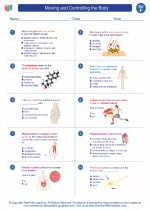What is an Axon?
The axon is a long, slender projection of a nerve cell, or neuron, that typically conducts electrical impulses away from the neuron's cell body. It is a crucial part of the nervous system and plays a key role in transmitting information from one neuron to another, and ultimately to various parts of the body.
Structure of an Axon
The axon is a specialized extension of the neuron that is responsible for carrying nerve impulses. It is typically a long, cylindrical, and cable-like structure that can vary in length from a few micrometers to over a meter in some neurons. The axon is covered by a fatty substance called myelin which acts as an insulator, allowing for faster transmission of nerve impulses.
Function of an Axon
The primary function of the axon is to transmit electrical impulses, or action potentials, away from the neuron's cell body. These impulses travel along the length of the axon and can trigger the release of chemical messengers called neurotransmitters at the axon terminals. These neurotransmitters can then communicate with the next neuron in the neural circuit, allowing for the transmission of information throughout the nervous system.
Study Guide for Understanding the Axon
- What is the primary function of the axon?
- Describe the structure of an axon and the role of myelin in its function.
- Explain how electrical impulses are transmitted along the axon.
- What role do neurotransmitters play in the function of the axon?
◂Science Worksheets and Study Guides Sixth Grade. Moving and Controlling the Body

 Worksheet/Answer key
Worksheet/Answer key
 Worksheet/Answer key
Worksheet/Answer key
 Vocabulary/Answer key
Vocabulary/Answer key
 Vocabulary/Answer key
Vocabulary/Answer key
 Vocabulary/Answer key
Vocabulary/Answer key
